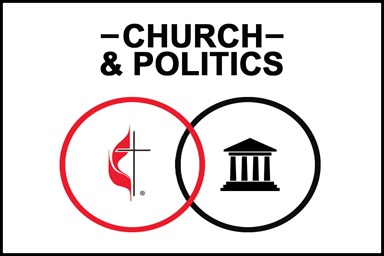Timothy Binkley deals with old stuff as archivist for a United Methodist seminary library.
And he found a new strategy for getting more of it.
Binkley started a Black Archives Matter campaign, aimed at showing that Bridwell Library, at Southern Methodist University’s Perkins School of Theology, cares about receiving, processing and promoting the scholarly use of papers of African American church leaders.
“We need to be more proactive in collecting African-American materials,” Binkley said. “First of all, because they’re important. Second, because students are going to come looking for them, and I want to be prepared to help.”
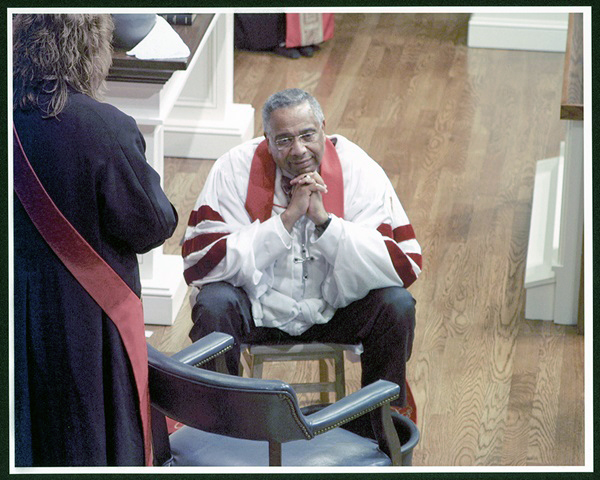
Bishop Rhymes Moncure, who led two conferences in the South Central Jurisdiction, is one of three African-American bishops featured in an exhibit at Perkins School of Theology's Bridwell Library. Photo courtesy Bridwell Library.
Binkley has curated a new Bridwell exhibit that features photos and papers of three late African-American leaders of The United Methodist Church — Bishops Ernest T. Dixon, W.T. Handy and Rhymes Moncure.
Meanwhile, Binkley’s campaign has spread across campus. It’s been renamed Black Archives Matter at SMU and involves the university’s other libraries.
“As soon as Tim started talking about Black Archives Matter, I thought, `This is something we should do,’” said Joan Gosnell, university archivist.
Last fall, SMU’s main library had an exhibit about Jackie Robinson, the United Methodist who broke the color line in Major League Baseball.
The law school library currently has an exhibit on a pioneering black Dallas attorney J.L. Turner. Next month the arts library will do screenings of black films from its collection.
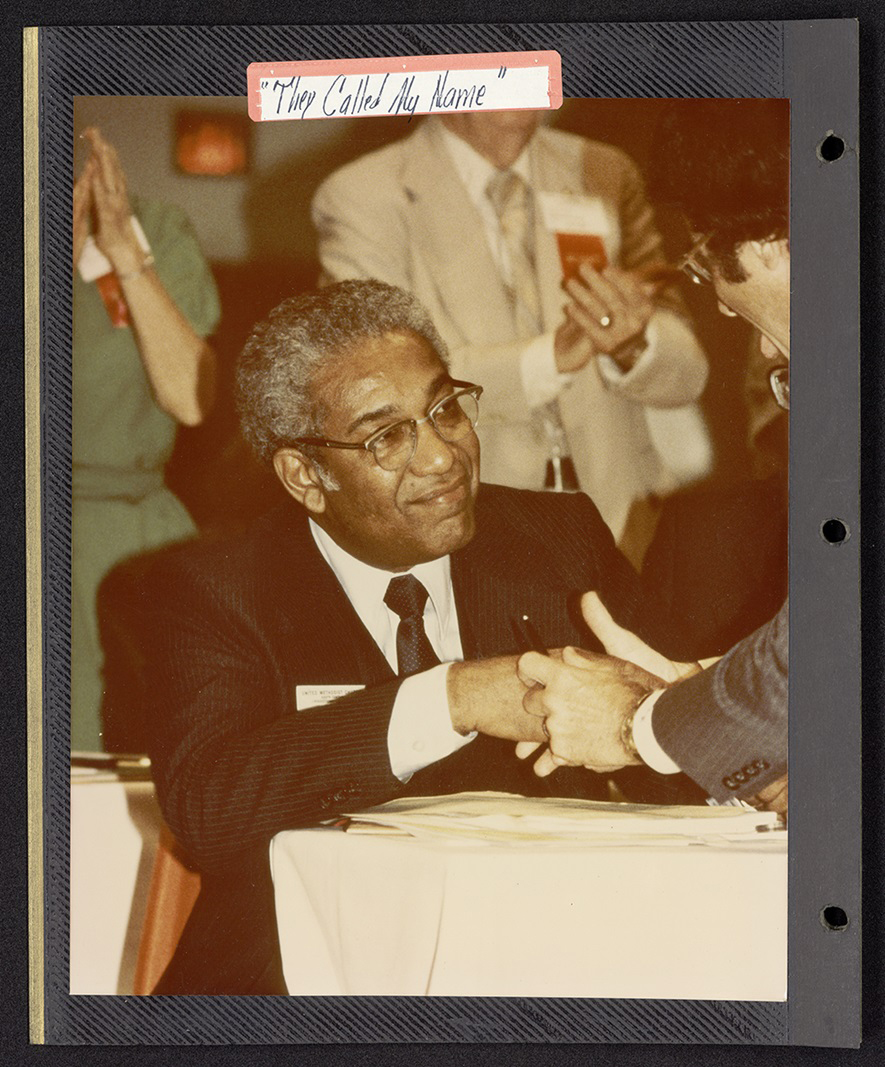
Perkins School of Theology's Bridwell Library has a photo of the Rev. W.T. Handy on his election as a United Methodist bishop in 1980. Handy's personal papers are at Bridwell, and he's among three African-American bishops featured in a new exhibit there. Photo courtesy Bridwell.
An SMU history professor, Jill Kelly, has chosen to have her oral history class interview early African-American students at the university. Those memories will be shared first at a special event and eventually through SMU library websites.
“Tim’s initiative was the spark,” Kelly said.
Black Archives Matter at SMU has won appreciation from Donté Ford, president of Perkins’ Black Seminarians Association. He called it “critical” encouragement for African-American students, a small minority at SMU.
“It shouldn’t stop there. It shouldn’t stop at all,” Ford said, explaining that he hopes to see Binkley and fellow archivists highlight Latinos, Asians and other minority groups.
Binkley, 54, came to Perkins and Bridwell in 2009 from United Theological Seminary, another United Methodist school.
He’s been an innovator, raising funds to digitize and add to the Bridwell website more than 200 radio sermons by the late Rabbi Levi Olan, an important Dallas figure of the 1940s-1960s who taught part-time at Perkins.
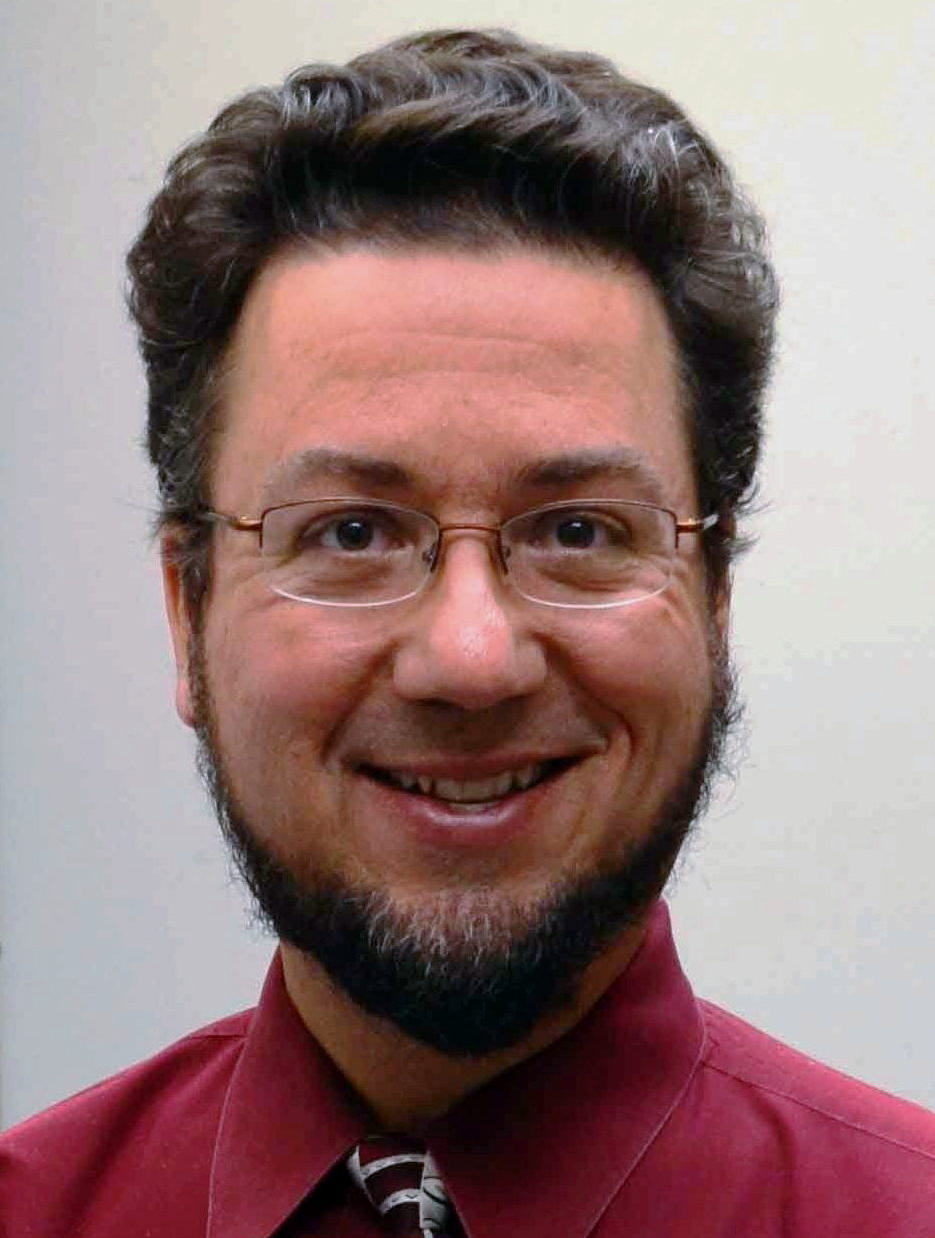
Timothy Binkley, archivist at Perkins School of Theology’s Bridwell Library, started a Black Archives Matter initiative. It’s grown to include other libraries at Southern Methodist University under the title Black Archives Matter at SMU. Photo courtesy Binkley.
Binkley also has been active in African-American history, curating an exhibit on the first black graduates of Perkins (and SMU), who finished in 1955.
But when he realized that of Bridwell’s 275 archival collections, only five dealt directly with African-Americans, he knew much more needed to be done. The situation was actually worse — African-American collections had not been processed and given a finding aid, or guide, to make them useful to scholars.
“Just to have an archival collection sitting on the shelf, unprocessed, does no one any good,” Binkley said.
Binkley’s Black Archives Matter idea came after the Black Lives Matter movement emerged in response to high-profile police shootings of African-Americans. Binkley said he’s not affiliated with the Black Lives Matter movement, but took inspiration from it.
In summer 2016, Binkley attended the Archives Leadership Institute at Berea College in Kentucky, and there shared and refined his plan. He committed to processing Bridwell’s African-American collections, and to finding a way to publicize them and get the word out that Bridwell wants more.
By January 2017, other SMU archivists had signed on.
“All I needed to do was mention this to my colleagues and they said, `Let’s get together and talk about it, because we want to be part of it too,’” Binkley recalled.
Since then, Binkley has processed and done finding aids for the papers of Bishops Dixon, Handy and Moncure. The corresponding exhibit underscores their specific contributions, including before they became bishops.
Dixon was the first African-American bishop in the South Central Jurisdiction, but earlier served as president of Philander Smith College and as a young clergyman had a Lord’s Acre farming and economic development ministry at Tuskegee Institute.
Handy was deeply involved in civil rights work and became the first African-American executive at the United Methodist Publishing House, easing racial tensions there. Moncure, elected bishop years a good bit later than the other two, was a certified conflict resolution practitioner who worked to integrate and revitalize congregations.
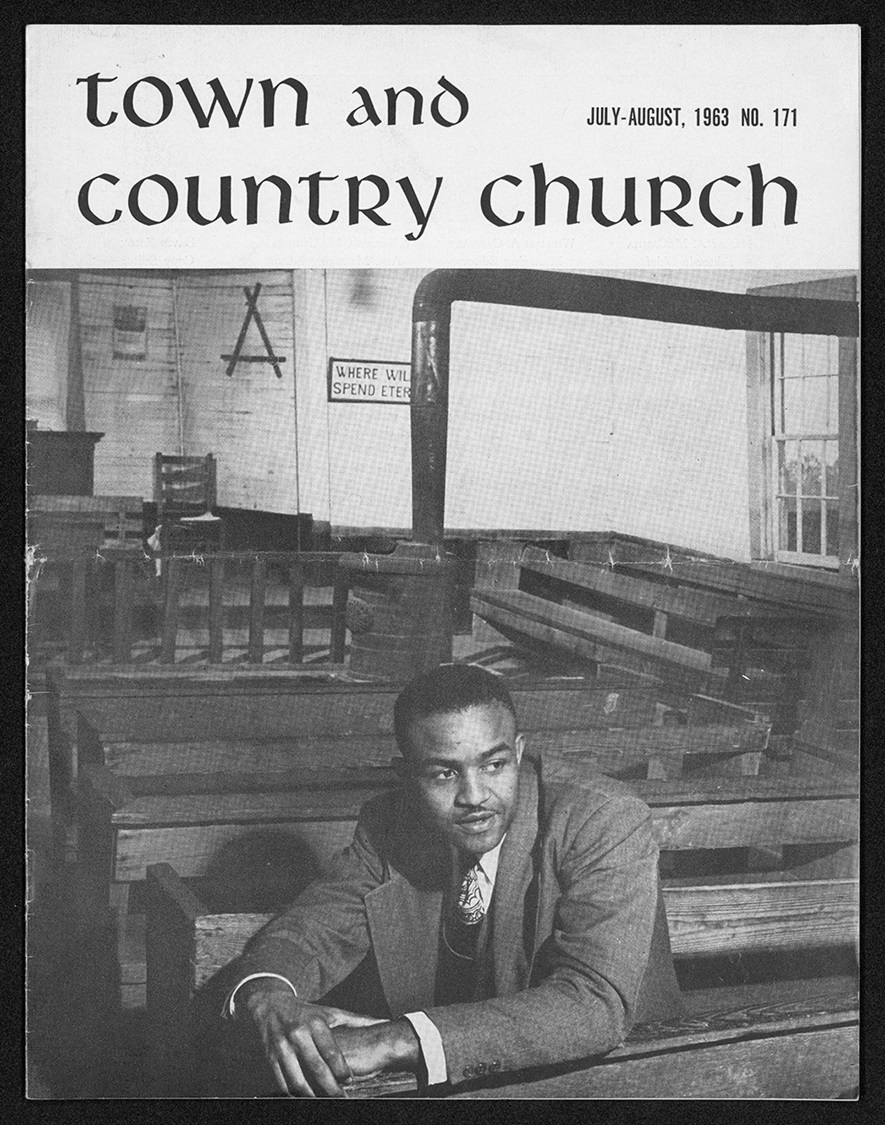
As a young clergyman, the Rev. Ernest T. Dixon received magazine coverage for his economic development ministry at Tuskegee Institute. He would become a United Methodist bishop and is one of three African-American bishops featured in a new exhibit at Perkins School of Theology’s Bridwell Library. Photo courtesy Bridwell Library.
Bridwell will have a program Feb. 6 on the bishops. The Rev. Zan Wesley Holmes, himself a legend among African-American clergy in The United Methodist Church, will speak.
“I knew all three of the bishops and supported their election, so it pleases me that there’s an exhibit,” Holmes said. “I’ve really been impressed with Tim’s commitment to all of this.”
Holmes belonged to the second wave of African-American students at Perkins and went on to lead Dallas’ St. Luke Community United Methodist Church to prominence. He served in the Texas House of Representatives, while also belonging to numerous local boards and teaching preaching part-time at Perkins for many years.
Retired now, Holmes said the Black Archives Matter at SMU effort has affirmed his decision to one day give his papers at Bridwell. But he warned with a laugh that Binkley should be careful what he asks for.
“I’ve got so much stuff.”
Sam Hodges, a writer for United Methodist News Service writer, lives in Dallas. Contact him at (615) 742-5470 or [email protected].
Like what you're reading? Support the ministry of UM News! Your support ensures the latest denominational news, dynamic stories and informative articles will continue to connect our global community. Make a tax-deductible donation at ResourceUMC.org/GiveUMCom.



